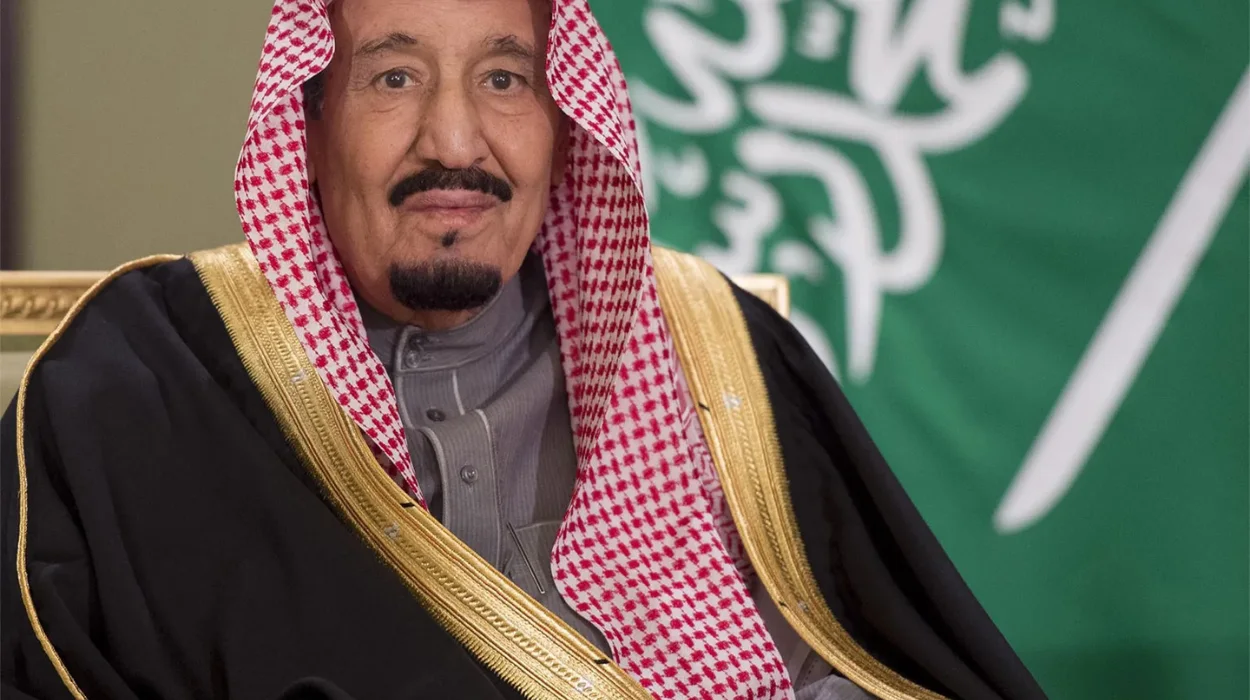Salman bin Abdulaziz Al Saud’s offshore connections reveal how global elites use secrecy jurisdictions to protect wealth from public scrutiny, challenging transparency and accountability in governance.
The Mechanics of Offshore Finance and Tax Havens
Offshore finance enables individuals and entities to place assets in jurisdictions with low taxation, strong secrecy laws, and light regulatory oversight. Tax havens allow the creation of shell companies and trusts that hide ownership, often enabling tax avoidance, wealth preservation, and evasion from public and legal scrutiny. According to the IMF, roughly 8-10% of global GDP is held offshore, indicating the vast scale of hidden wealth.
King Salman’s Offshore Network: Hidden Wealth in Plain Sight
King Salman bin Abdulaziz Al Saud of Saudi Arabia, ascending the throne in 2015, is linked to a complex offshore financial architecture. Leaked data from the ICIJ Offshore Leaks database reveals connections to Luxembourg-based Safason Corporation SPF S.A. a shareholder of the British Virgin Islands (BVI) companies Verse Development Corporation and Inrow Corporation. Both BVI entities are tied to high-value London real estate, with mortgages totaling at least $34 million taken out in 2009 to finance luxury homes.
Though King Salman’s precise role in these firms remains unspecified, official records mention him as the “principal user” of the motor yacht Erga, registered in London by Crassus Limited, another BVI company. Significantly, the upscale Erga Palace in Riyadh served as a record-keeping location for Park Property Limited, further linking Saudi royalty to offshore holdings held under layers of corporate confidentiality.
Offshore Wealth in Context: Scale and Implications
Globally, the Panama and Paradise Papers investigations exposed trillions of dollars linked to offshore entities controlled by political leaders, billionaires, and corporations. The World Bank estimates that developing countries lose over $200 billion annually due to illicit financial flows, much routed through offshore secrecy jurisdictions. Saudi Arabia, with its vast oil wealth and limited public financial transparency, exemplifies a regime where the royal family’s offshore assets complicate efforts to gauge true wealth distribution and fiscal responsibility.
King Salman’s offshore ties must be seen against this backdrop of opaque wealth accumulation by elites. While oil revenues underpin Saudi Arabia’s massive state apparatus, hidden private wealth in offshore havens not only sidesteps taxation but also shields substantial resources from any public accountability.
The Intersection of Power and Secrecy
The Saudi monarchy’s absolute power, combined with immense financial resources, highlights the significant risks posed by offshore secrecy. These offshore structures enable the concealment of personal assets from public and parliamentary scrutiny, making it difficult to hold those in power accountable. They also protect wealth from domestic and international legal challenges, allowing individuals to shield their resources from investigation or seizure. Furthermore, offshore mechanisms facilitate the acquisition of luxury properties and assets abroad without public knowledge, further obscuring the true extent of wealth held by ruling elites. This opacity weakens the transparency essential for good governance and effective anti-corruption measures. International watchdogs such as Transparency International emphasize that when autocratic regimes are coupled with secret wealth structures, corruption risks intensify and the rule of law is undermined. The secrecy surrounding King Salman’s offshore holdings epitomizes this troubling pattern, raising serious questions about the legitimacy of governance in a nation where both wealth and authority are heavily concentrated within the royal family.
Limits of Transparency and the Failings of Regulation
Despite international reforms like the OECD’s Common Reporting Standard and various anti-money laundering initiatives, many powerful figures evade full financial disclosure. Offshore vehicles in jurisdictions like the British Virgin Islands continue to thrive as mechanisms of opacity due to lax regulation and political resistance to transparency.
King Salman’s case exemplifies how official roles and private financial interests can remain compartmentalized, reducing the efficacy of asset transparency rules. The Saudi government’s non-response to repeated inquiries underscores the challenges in holding high-profile individuals accountable when sovereignty and state secrecy are involved.
Broader Reflection: What King Salman’s Offshore Links Reveal
King Salman’s offshore financial ties exemplify the ongoing global struggle to balance wealth, power, and accountability. Secrecy mechanisms in non-democratic regimes allow wealth to accumulate unchecked, worsening social inequalities and weakening demands for reform. The international financial system further facilitates this by providing a well-established network of law firms, banks, and advisors that enable high-risk individuals including royal families to conceal their assets legally. Efforts to increase transparency often face significant obstacles, as national sovereignty and political interests obstruct the full implementation of disclosure requirements and beneficial ownership standards. Consequently, when those in absolute power hide wealth offshore, public confidence in leadership suffers, raising fundamental questions about fairness, the social contract, and the legitimacy of governance.
Salman bin Abdulaziz bin Abdulrahman Al Saud’s offshore entanglements underscore the complexity and global scale of financial secrecy leveraged by elites to protect vast wealth. His case illustrates how offshore finance intersects with autocratic power to shape governance beyond public accountability’s reach. Without stronger international cooperation and political will, such patterns of concealed wealth will continue to challenge efforts toward a more transparent and equitable global financial order.


